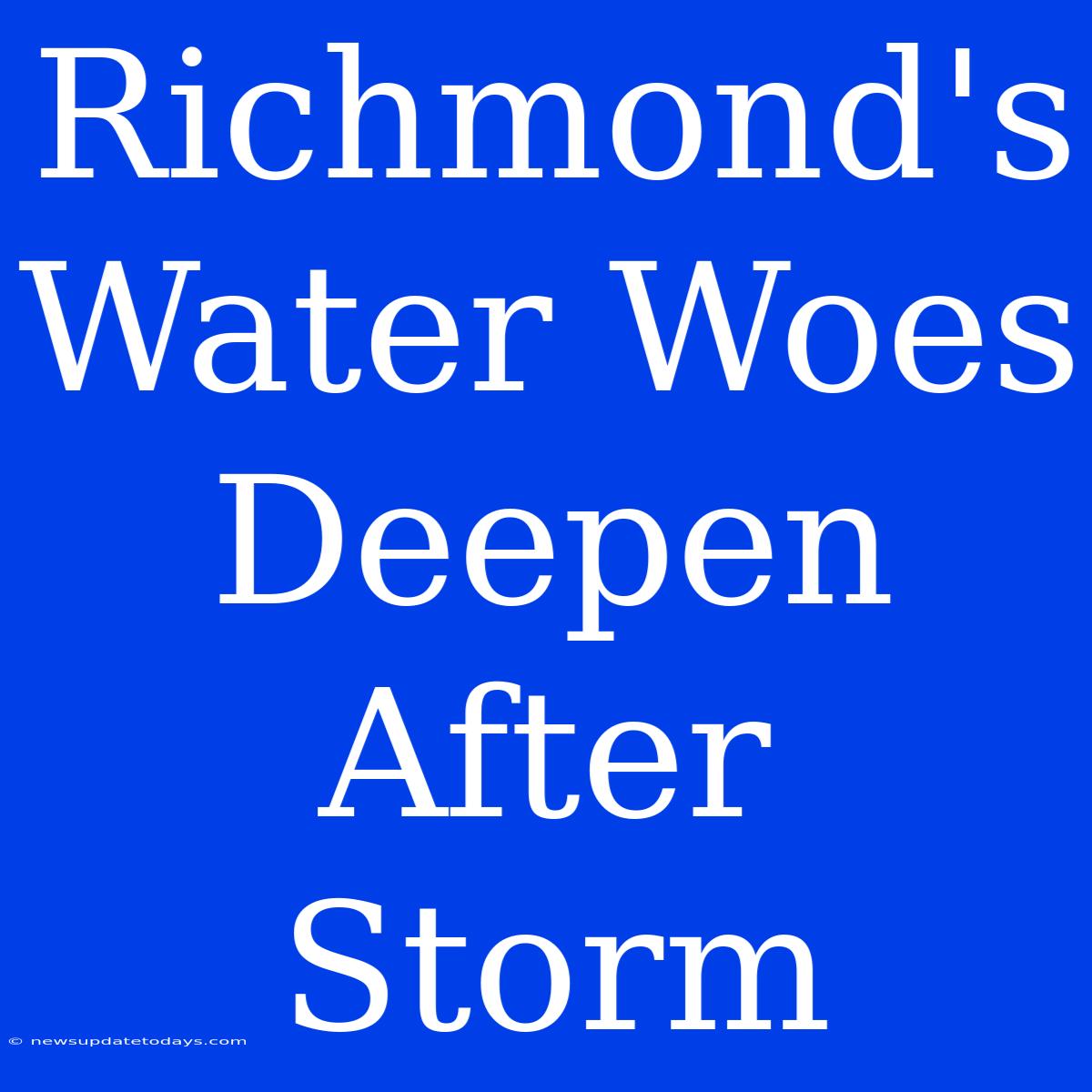Richmond's Water Woes Deepen After Storm: A City Struggles with Flooding and Infrastructure
Richmond, Virginia, is grappling with a deepening water crisis in the aftermath of recent severe storms. The deluge has overwhelmed the city's aging infrastructure, leading to widespread flooding, contaminated water supplies, and a growing sense of urgency among residents. This article delves into the extent of the damage, the challenges faced by the city, and the long-term implications for water management in Richmond.
Widespread Flooding and Infrastructure Damage
The intense rainfall caused unprecedented flooding across the city. Many neighborhoods experienced submerged homes and businesses, leaving residents stranded and property severely damaged. Beyond the immediate flooding, the storm exposed the fragility of Richmond's aging water and sewer systems. Decades of underinvestment and deferred maintenance are now manifesting in catastrophic consequences. Reports indicate numerous water main breaks, sewer overflows, and significant damage to wastewater treatment plants.
Contaminated Water Supplies and Public Health Concerns
The flooding has contaminated several water sources, raising serious public health concerns. Officials have issued boil water advisories for numerous areas, urging residents to avoid tap water for drinking, cooking, and brushing teeth. The risk of waterborne illnesses is substantial, and the city is working tirelessly to restore clean water supplies to affected communities. The long-term effects of exposure to contaminated water remain uncertain, adding another layer of complexity to the crisis.
The Challenges Ahead: Repair, Recovery, and Prevention
Richmond faces a monumental task in the coming weeks and months. The immediate priority is to repair damaged infrastructure, restore clean water supplies, and provide assistance to affected residents. This requires a significant investment of resources and manpower. Furthermore, the city must address the underlying issues that contributed to the severity of the crisis. A comprehensive review of the city's water infrastructure is crucial, along with a long-term plan to upgrade and modernize aging systems. This will undoubtedly require substantial funding and collaboration between local, state, and potentially federal authorities.
Long-Term Implications and the Need for Sustainable Solutions
This water crisis serves as a stark reminder of the vulnerability of urban areas to extreme weather events. Richmond's experience underscores the urgent need for proactive measures to enhance the resilience of water infrastructure and promote sustainable water management practices. Investing in robust infrastructure, implementing effective flood control measures, and promoting water conservation are crucial steps to prevent future crises. The city must learn from this event and prioritize long-term solutions to ensure the safety and well-being of its citizens. This requires not only financial commitment but also a fundamental shift in how the city approaches water resource management.

